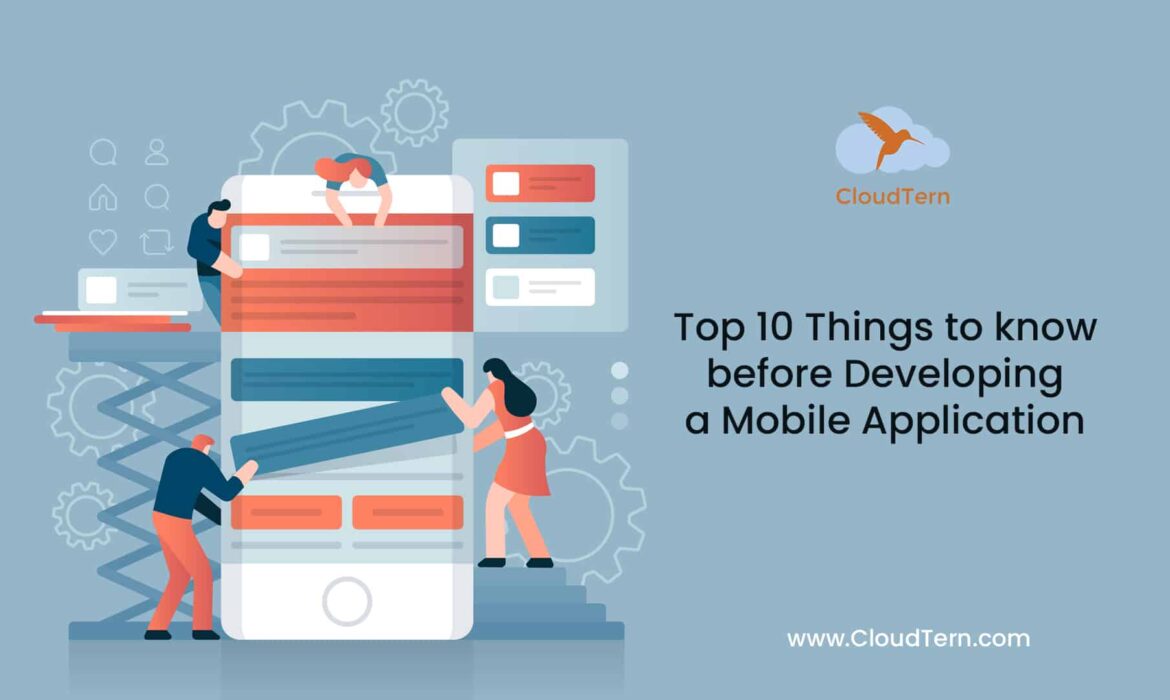 The mobile market is rapidly evolving. With smartphones becoming increasingly popular, businesses are now forced to create mobile-first applications to tap this huge market. Mobile apps help businesses to maintain seamless communication with customers, quickly tap into new markets and increase revenues. Before developing a mobile app, it is important to consider these top 10 aspects.
The mobile market is rapidly evolving. With smartphones becoming increasingly popular, businesses are now forced to create mobile-first applications to tap this huge market. Mobile apps help businesses to maintain seamless communication with customers, quickly tap into new markets and increase revenues. Before developing a mobile app, it is important to consider these top 10 aspects.
1) Identify your Target Audience
Before jumping onto the development phase, it is important to identify your target audience. Without knowing who will use it, you can’t design the features and functionalities of the mobile application. For instance, if you are creating an app for senior citizens, you should ensure that buttons, fonts and other user interface elements are large enough to be visible to all users. Once you identify your target audience, you can then ask questions about what features and functionalities they require and how the app can add value to their lives as well as to the business.
2) Perform Market Research
Before creating a mobile app, perform market research to identify customer requirements, market trends and popular niches etc. You don’t want to reinvent the wheel when there are multiple options available in the market. Think out of the box and create something unique to stand out from the crowd. In case you want to create a similar app, consider what unique features you can incorporate into the app and how it can be better than the available ones.
3) Choose the Target Platform
Today, Android and iOS are the two most popular mobile platforms available in the market. If you are creating a mobile application, choose between iOS and Android before proceeding with the development. The reason is that iOS uses Swift and Objective – C while Android requires Kotlin or JavaScript. Based on the OS/platform you have to choose the technology stack and coding professionals. Android is more popular and accounts for the majority of mobile users. So, creating a mobile app for Andriod users will be a good idea.
4) Native Vs Hybrid App
Another important aspect to consider is choosing between native and hybrid app development models. A native app is created for a specific platform while a hybrid app works on both platforms. Native apps offer more speed and performance while delivering a great user experience. However, it takes more time to create a native app. The development costs are comparatively more as well. On the other hand, hybrid apps are easy and quick to build but might not offer the same speed, performance and user experience compared to native apps.
5) Prepare your Budgets
Before launching the development cycle, make sure to come up with a budget for the entire product lifecycle. Consider the target audience, the features and functionalities required, platform/OS and the type of app development model to choose, technology stack and professionals etc. Don’t forget to add the maintenance costs as well. Once you have a budget plan, you can optimize the development process to create a cost-effective app.
6) Create an App Development Strategy
Developing a mobile app is not an easy task. Right from product design, architecture and development to testing and launching the app, there are multiple stages of the development lifecycle involved. As such, it is important to understand the entire process before beginning the project. The job doesn’t end with releasing the app. You should also consider maintenances, updates and releases.
7) Build an MVP First
Before releasing your app into the market, it is important to test it on target devices. You can do so by creating a minimum viable product (MVP) that contains important features of the app. By testing the MVP, you can understand whether the app can solve the intended problems, how is the performance of the app, what features can be improved etc.
8) User Experience is Important
In addition to features and performance, user experience is the key to the success of your business. The ease of navigation, color scheme, fonts and the aesthetic display is what captures the interest of your users. It also gives them an impression of your business. When customers encounter a bad experience while using the app, they might look out for other options.
9) App Security is Important
For any software product, security is undoubtedly the most important aspect. When it comes to mobile apps, security becomes even more important. Similarly, data security and integrity has to be taken care of as well. If you are building an app without a data protection plan, you are actually creating a disaster.
10) Choose the right mobile development company
It is important to understand that your mobile app is the gateway for your customers to reach out to you. So, you can’t keep any stone unturned. To develop a high-performing mobile app that delivers value to users, choose an experienced mobile app development company. Before finalizing one, check out the reputation of the company, customer reviews, case studies etc. Similarly, find out the technologies they use and the coding skills they possess. User experience is a key aspect as well.
CloudTern is a leader in the mobile app development segment. Whether you want to build a custom iOS/Android App or a hybrid solution, CloudTern is here to help.
Contact us right now to stay ahead of your competition!



